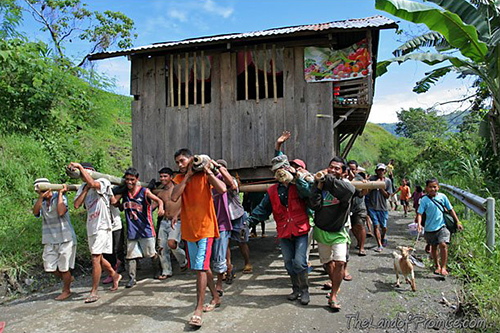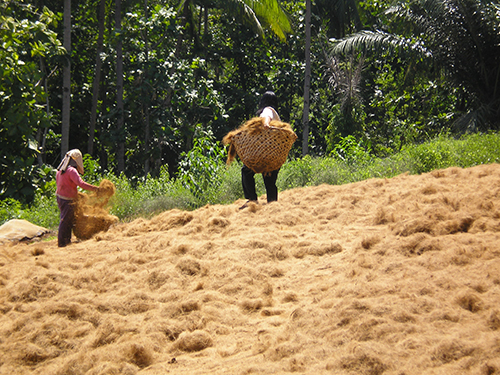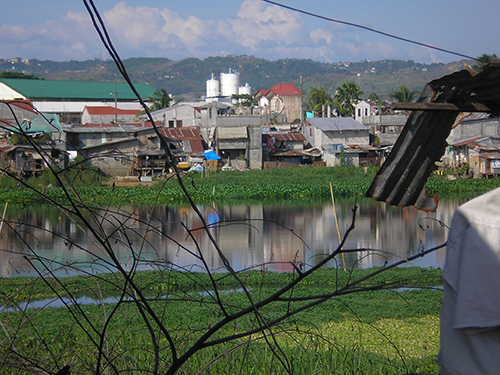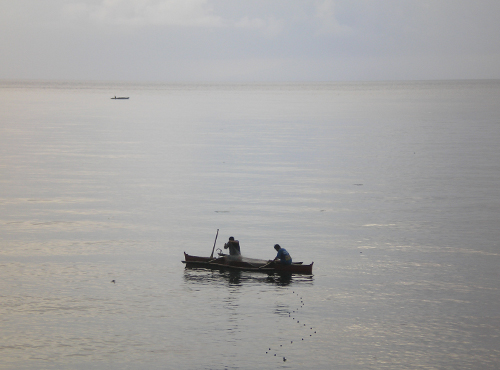Strengthening Economic Resilience in Monsoon Asia
Sharing, reciprocity and resource pooling are at the frontline of recovery and relief when economic crisis or disaster hits Monsoon Asia. This research aims to shed light on cases where these economic practices have been innovatively harnessed to diversify livelihoods and build economic resilience. Working with contemporary Asian scholars, practitioners in the disaster field and a data set gleaned from multiple sources, including mid-20th century tropical geography texts, the project aims to bring to the fore a regional landscape of diverse economic practices across Monsoon Asia. A cross-regional online knowledge community is expected to be formed to explore how this asset base might be mobilised towards more effective local development and disaster response.
Researchers: Professor Katherine Gibson (ICS), Dr Lisa Law, Dr Ann Hill (University of Canberra), Associate Professor Darlene Occeña Gutierrez
Funding: Australian Research Council (opens in a new window), Discovery Project
Period: 2015-2018
Research Project Manager: Joanne McNeill
» Fact sheet (opens in a new window) (PDF, 2.1MB)
Overview
Sharing, reciprocity and resource pooling are at the frontline of recovery and relief when economic crisis or disaster hits Monsoon Asia. This research aims to shed light on cases where these economic practices have been innovatively harnessed to diversify livelihoods and build economic resilience. Working with contemporary Asian scholars, practitioners in the disaster field and a data set gleaned from multiple sources, including mid-20th century tropical geography texts, the project aims to bring to the fore a regional landscape of diverse economic practices across Monsoon Asia. A cross-regional online knowledge community is expected to be formed to explore how this asset base might be mobilised towards more effective local development and disaster response.

'Bayanihan', Philippines. Photo by Bobby Timonera (opens in a new window).
The project aims to:
1. Advance a regional understanding of diverse economic practices and map this relatively hidden geography of Monsoon Asia.
2. Analyse specific cases of community resilience in Myanmar and the Philippines using the theory of community economies developed by Gibson-Graham.
3. Develop knowledge networks to communicate insights into resilience building and forge new economic development pathways for communities across Asia.
The Australian-based team consists of economic geographers Professor Katherine Gibson (ICS), Dr Ann Hill, (University of Canberra) and urban geographer Dr Lisa Law from the Centre for Disaster Studies, James Cook University (an institution leading the way in addressing critical challenges facing the tropics). Associate Professor Darlene Occeña-Gutierrez, Department of Geography, University of the Philippines, will lead the South East Asian side of the team. Associate Professor Occeña-Gutierrez has field experience researching socio-economic and disaster-related issues in Myanmar and the Philippines and her contribution is vital to developing a shared understanding of concepts across Monsoon Asia.

Coco coir air drying in Kolambugan, Philippines. Photo by Ann Hill.
It is the theoretical work of Professor Gibson on re-thinking 'the economy' as diverse that undergirds the Strengthening Economic Resilience in Monsoon Asia (ERMA) research project. Distinguishing economic practices associated with capitalism (waged labour, capitalist enterprise and market transactions) as just the tip of the iceberg in terms of the activity that sustains livelihoods, Gibson's influential work with Julie Graham (under the pen name 'JK Gibson-Graham') has permitted the theorising of pathways to social transformation and more sustainable economies that are not primarily driven by capitalist dynamics. The ERMA program will include analyses of specific cases of community resilience in Myanmar and the Philippines using the theory of community economies developed by Gibson-Graham.
'The important thing is that diverse economic practices have long enabled communities to survive but they've been positioned as traditional and rural and largely superseded and subsumed; rolled into self-regulating modern markets and a dominant vision of what economic development would be', explains Research Project Manager Dr Hill.
The project is being launched at a time when the globe is facing increasing climate and resource uncertainty. By revealing insights into economic practices of resilience building – drawing from contemporary and past practices of communities in the Monsoon Asia region – researchers hope their work will highlight new pathways to sustainable economic development.

Poor quality housing in flood zone. Photo by Ann Hill.
The project will involve a network of stakeholders such as international scholars, community researchers and NGOs. They will join the Australian team in the co-production of knowledge through joint research, workshops and an online community.
'It's a process of gathering and assembling various knowledge partners in a conversation. We're hoping it will be a very dynamic and exciting space, a two-way conversation, with people coming in with their own unique perspective', says Dr Hill.
Dr Hill says she hopes the project's methodological approach, which also makes a distinct point of drawing upon both contemporary and historical records and archival texts, will prove 'enriching' for those involved: 'I think one of the strengths of this project is that it circles back and envisions the new simultaneously'.
'It's very clear that humanity needs new ways of surviving in the 21st century and the survival of our planet is very dependent on us finding new ways of communities coping with environmental and economic uncertainty'.
Further Information
For further information about this project please contact Professor Katherine Gibson.

Small scale fishers off Jagna coast, Philippines. Photo by Ann Hill.
Read about the impact of Community Economies research.




